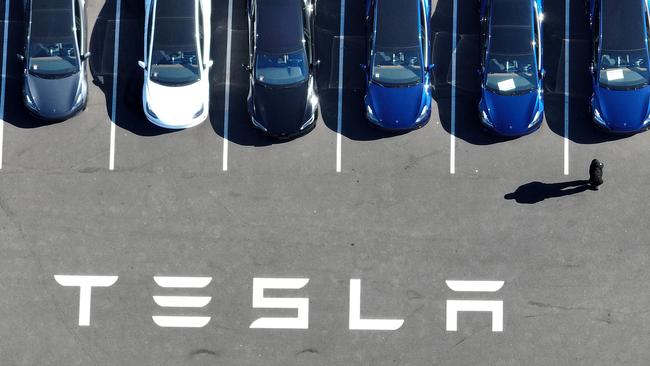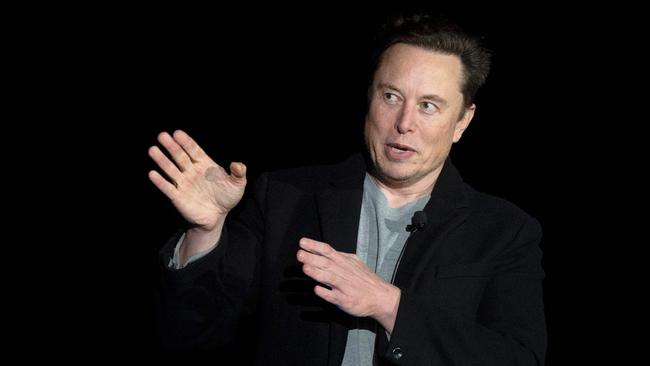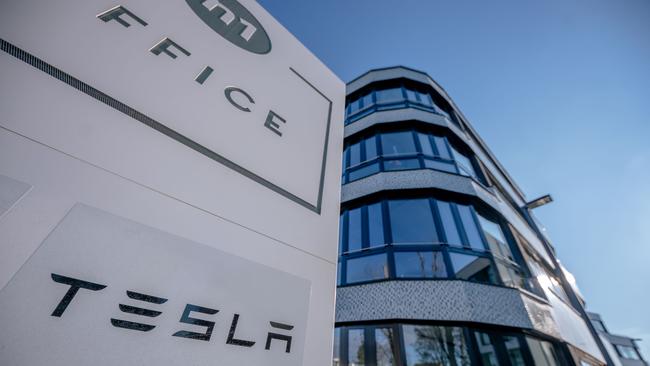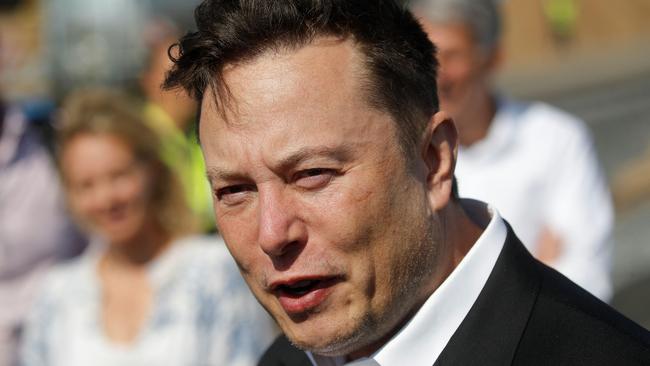The Musk factor: How a billionaire has brought down the value of Australia’s favourite overseas stock
The facts have changed for Australia’s favourite overseas stock and the immediate outlook for Tesla is weak.

“When the facts change, I change my mind, what do you do?” said economist John Maynard Keynes – or was it Winston Churchill? The debate rages on.
But you get the concept: I have been a supporter of Tesla, the stock, for some time and write here regularly on Elon Musk’s electric vehicle empire.
On December 13, 2021, Time magazine named Musk, the CEO of Tesla and SpaceX, the man of the year, but since that cover story a year ago the facts have materially changed.
Twelve months on, Musk is in a firestorm of self-inflicted pain post the seemingly misguided takeover of Twitter.
Earlier this week in an attempt to stem the tide of stock selling, he asked Twitter users to vote on whether he should remain as CEO of the social media group, the vote finished with a clear majority in favour of his departure,

The mighty Tesla brand is increasingly being damaged by the externalisation of Musk’s political views on his personal social media foghorn, which are diametrically opposed to the usual progressive leaning Tesla buyer.
For Australian investors – where Tesla remains the most heavily traded overseas stock – it’s worth recalling Musk has sold Tesla shares to fund the mispriced acquisition of Twitter with an ongoing overhang of further Tesla stock sales to refinance Twitter’s high-cost debt.
Demand for Tesla vehicles is apparently being impacted by shrinking waiting lists, high interest rates (financing costs) and a leakage of customers due to Musk’s Twitter rants. The secular trend towards EVs is not gone, but consumers will likely be more price conscious from now on.
Musk is not alone in his fall from grace. First prize must go to Sam Bankman-Fried, known as SBF. The founder and CEO of FTX and the Alameda hedge fund is currently locked in a Bahamian prison cell facing fraud charges.

At one stage, this supposed crypto genius and gaming fanatic was quoted by a media source as the second coming of JP Morgan. Surely claims like this should have sent alarm bells ringing.
Regrettably investors both in FTX, the company, and the associated Alameda hedge fund are staring down the barrel of the US largest embezzlement scandal in history with $US1.8bn-plus in losses.
The most glaring red light for investors is to be wary about charismatic, maverick business founders and CEOs. Mavericks in the investing world cut both ways for shareholders.
The Tesla board is wanting for legitimacy as Musk has used his substantial Tesla shareholding to fund his own personal social media dream (Twitter).
In the process, some would argue Musk’s hubris and “Godlike” complex is compromising loyal investors.
Of course, not all Tesla shareholders and Musk fans will see the foray as misplaced but, in the short term, a 65 per cent-plus fall in the share price is painful: On Wall Street, the Nasdaq is down more than 30 per cent, and the broader S&P 500 index has dropped by around 20 per cent.

No billionaire can save the world, but this doesn’t stop some from imposing their own will on the rest of us.
Corporate governance matters and matters a lot. Investors are often all too happy to gloss over the significance of governance, because when the sun shines and the share price is rising, nobody cares. Stakeholders only take note when they start losing money.
The exclusion of Tesla from ESG indices and funds, based on perceived lack of good corporate governance, looks in hindsight to be a well-founded decision.
Tesla is not dead nor even on life support, it is no FTX.
To date the compression in the Tesla valuation has been driven by two factors: higher interest rates impacting on expensively valued shares, and the Musk overhang of share sales and the seeming financial tie to Twitter.
Many loose shareholders – like myself – have sold by now, leaving the Musk acolytes and the ETF average cost operators or the “mindless mob” as they are sometimes referred to as the last shareholders.
I am guessing the company will look a lot different in a year’s time and so might the board and management structure. An activist shareholder may even appear on the register.
Looking ahead, Morgan Stanley’s US strategist Mike Wilson believes investor concerns will shift to an earnings recession in 2023 and share prices will be more impacted by profit downgrades.
For Tesla shareholders keep a close eye on how resilient the EV giant is to a slowing macro backdrop on sales and margins.
Once Musk retreats to doing what he does best, being an engineering superhero, the Twitter umbilical cord is severed and there is more transparency on earnings, there will be scope for the market to rerate Tesla shares.
At some point though, even Tesla will be a bargain.
Danielle Ecuyer is the author of Shareplicity



To join the conversation, please log in. Don't have an account? Register
Join the conversation, you are commenting as Logout